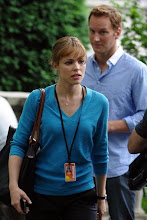The powerful Ottoman Empire lasted from 1300 until 1923, over six hundred years. It was the most powerful in the world at that time, with 30-35 million people under its rule, and an army of approximately 100,000 people. The Ottomans defeated the Serbian Empire (the Serbs were Greek/ Orthodox Christians), and the Byzantine Empire, and among their conquests were Egypt, Syria, Arabia, and the Balkans.
Osman founded a Sultan dynasty of ten rulers around 1300. The Sultans were mostly good leaders, though all under them were considered both slaves and family (not quite sure how that worked!). The Sultans’ palace was also the place that held a harem of 2000 women. Another famous sultan was Sulieman the Magnificent (1520-66), who was sultan and caliph, and who claimed the leadership of Sunni Islam.
Topkapi Palace was the center for Ottoman Power, and was in Istanbul, or Constantinople, as it was called before the Turks conquered it from the Byzantine Empire in 1453, under Mehmet II. The Topkapi Palace’s kitchen fed 5,000 per day, and 10,000 per day if there was a banquet. The grounds were 7.5 million square feet, and contained 10 mosques, 14 bathhouses, 2 hospitals, 4,000 horses, and a Janissary Barracks.
One interesting thing is that I found about the Ottoman Emipire was their Janissary Corps. This corps was made from the “boy tax,” or devshirme, a tax that was put on the Balkan Christians. The boys were converted to Islam, educated, and rose to the top as viziers or as part of the Janissary Corps, which was an elite group of soldiers who were not allowed to marry or own land. Some Christians resented this “boy tax,” while others saw it as a chance for their boys to advance. Eventually, the Janissary Corps became discontent, grew very powerful in the government, and eventually were eliminated because of their strength and mutiny against the government.
